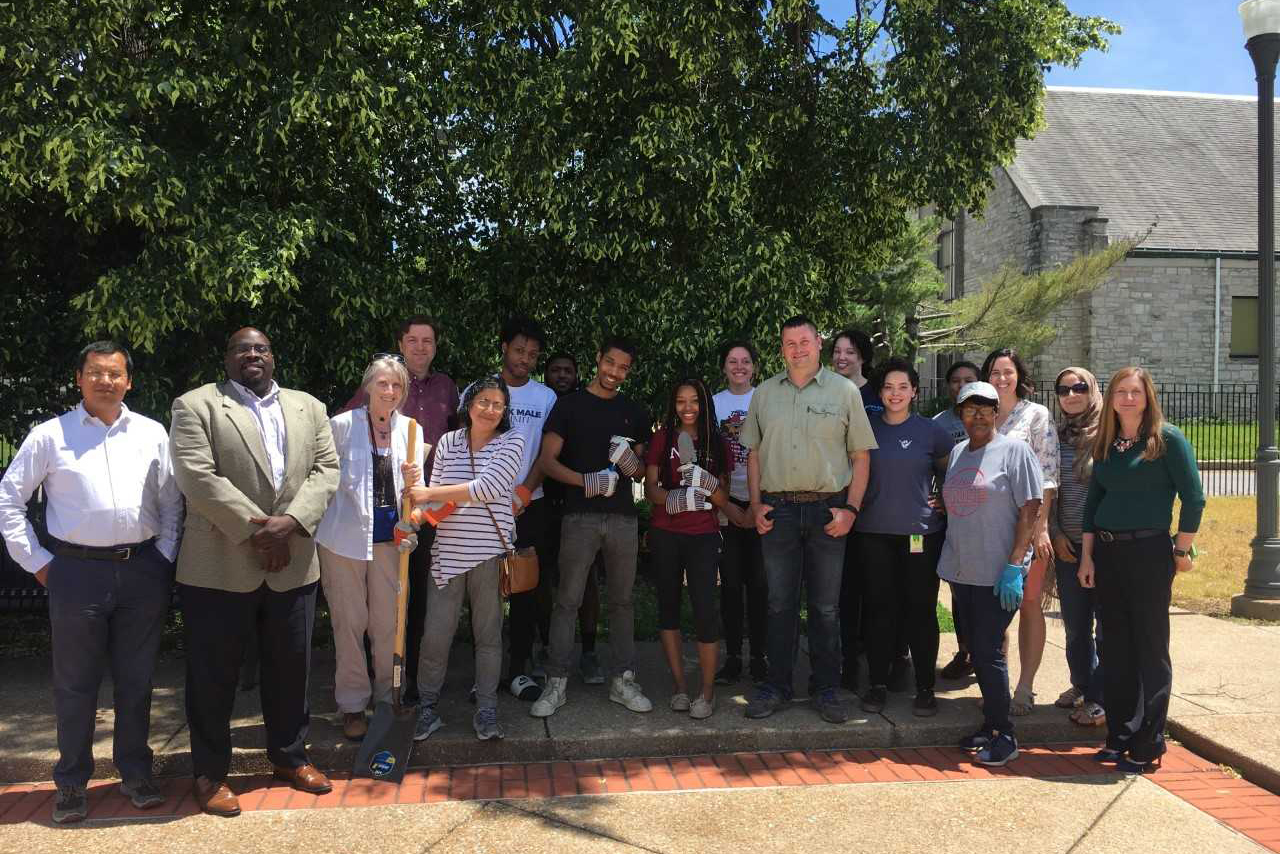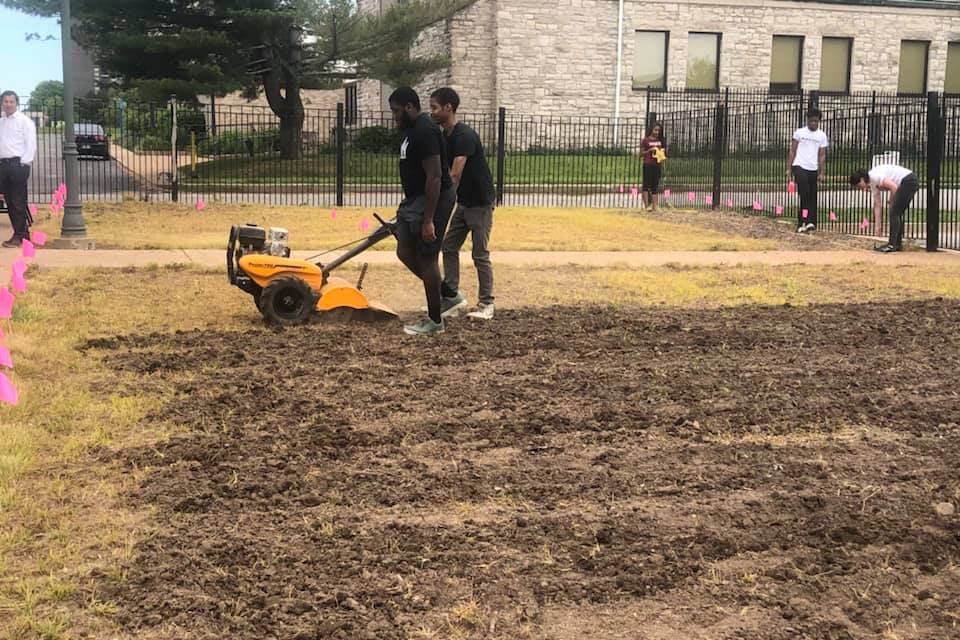SLU Helps Establish Farm, Advance Minority Participation in STEM
Thanks to a U.S. Department of Education grant to Harris-Stowe State University (HSSU) to increase minority participation in STEM fields, with sub-grants to SLU, faculty and students from the two universities planted a garden on HSSU’s campus on Monday, May 20.
HSSU was awarded the Minority Science Engineering Improvement Program grant to increase
student engagement in academics, campus life and foster strong student-faculty interactions,
as well as support student and faculty research. As a part of this work, they are
establishing an agriculture exhibit and farm on HSSU’s campus, near SLU’s Il Monastero.
SLU will support Harris-Stowe in this work through a sub-grant awarded to Vasit Sagan,
Ph.D., associate professor of Earth and Atmospheric Sciences at SLU, who has provided
workshops and training, including work with remote sensing, imaging, GIS, statistics
machine learning and mathematical modeling. On Sagan’s team, post-doc Nicole Gosselin,
Ph.D., will lead the SLU portion of the project.
Another partner on the grant, Bayer, has provided seeds, taken samples for soil tests,
helped prepare the land and assisted with planting. They also will partner with HSSU
in training students and faculty members.
The researchers will study the effect of climate change on crops using machine learning,
drone imaging and other tools.
“This is a wonderful opportunity to partner with our neighbor, Harris-Stowe, to tackle issues around climate change and food security as we work to support and encourage minority participation in STEM fields,” Sagan said. “Working together with Bayer scientists, this is a great partnership for St. Louis.”



















